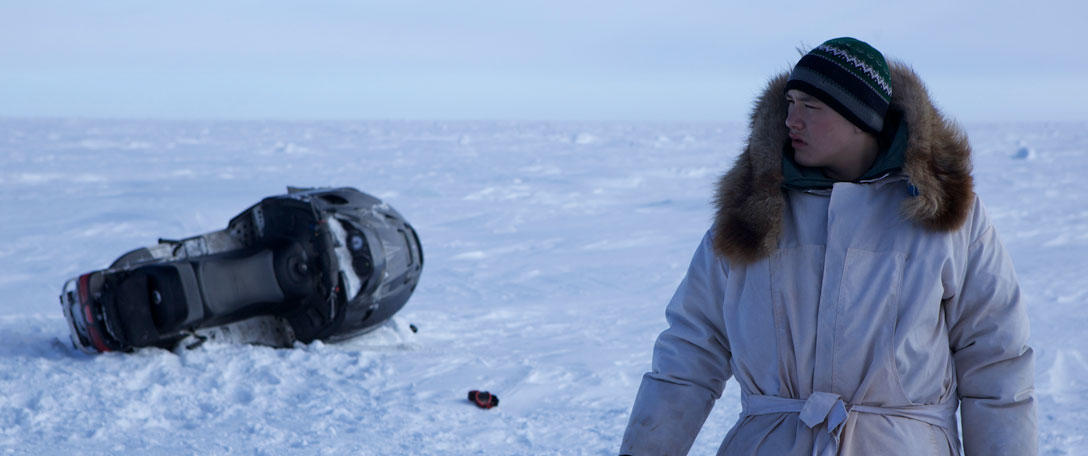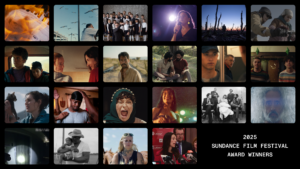Andrew Okpeaha MacLean’s “On the Ice” (2011 Sundance Film Festival)
Liz Hill
National Native American and Alaska Native Heritage Month has been observed every November since 1990. During this month and throughout the year, Sundance Institute through its Native American and Indigenous Program recognizes and supports the immense talent and ongoing accomplishments of Indigenous storytellers in the Americas and globally.
Sundance Institute has been committed to the Native and Indigenous presence in film since the Institute’s founding in 1981. Throughout the history of the Institute, the Native Program has played an important role in elevating the work of Native and Indigenous storytellers to national and international acclaim.
Visibility and appreciation of Native and Indigenous films and the artists responsible for their creation has been steadily increasing over the years. One of the best examples of Native storytellers coming into their own in the mainstream was the 2016 invitation to five Native Program alumni to join the prestigious Academy of Motion Picture Arts and Sciences.
This year, three Native Program alumni were invited to join the Academy: Zacharias Kunuk (Inuit), Andrew Okpeaha MacLean (Iñupiaq) and Alanis Obomsawin (Abenaki). Kunuk’s short film, Home (Angiraq), screened at the 1996 Festival in Beyond Borders: New Native Cinema. Kunuk was invited to join the Directors Branch of the Academy.
Andrew Okpeaha MacLean’s short film, Natchiliagniaqtuguk Aapagalu, screened at the 2005 Festival. His dramatic short film Sikumi won the Grand Jury Prize for Short Filmmaking at the 2008 Festival. His feature film On the Ice, which he directed and wrote, screened in 2011 in the U.S. Dramatic Competition. MacLean also served as a Creative Advisor at the 2014 and 2016 Native Filmmakers Labs. Okpeaha was invited to join the Short Films and Feature Animation Branch of the Academy.
Alanis Obomsawin is a director, producer, and screenwriter with a long Sundance Institute history. Her Festival films include Richard Cardinal: Cry from a Diary of a Metis Child (1987); Kanehsatake: 270 Years of Resistance (1994); Spudwrench—Kahnawake Man (1998); Rocks at Whiskey Trench (2001); Is the Crown at War with Us? (2003); and Our Nationhood (2004). She was a Documentary Competition Juror at the 2002 Festival. Obomsawin was invited to join the Documentary Branch of the Academy.
“The Native Program is proud of the role it has played to build and sustain an Indigenous film circle,” says Native Program Director N. Bird Runningwater (Cheyenne/Mescalero Apache). “In fact, the history of support from the Institute predates the founding of the Institute to Robert Redford’s personal support and mentorship of Native filmmakers.”
Throughout the year, the Native Program continues its support with fellowships, Labs, mentorships, public programs, and the platform of the Sundance Film Festival. “Each year even greater strides are made in supporting an Indigenous-created body of cinema while supporting the growth of Native American and Indigenous participation in the film industry,” says Runningwater. “We see this most vividly in the selection of our Native alums being invited to join the world’s preeminent motion picture-related organization.”




